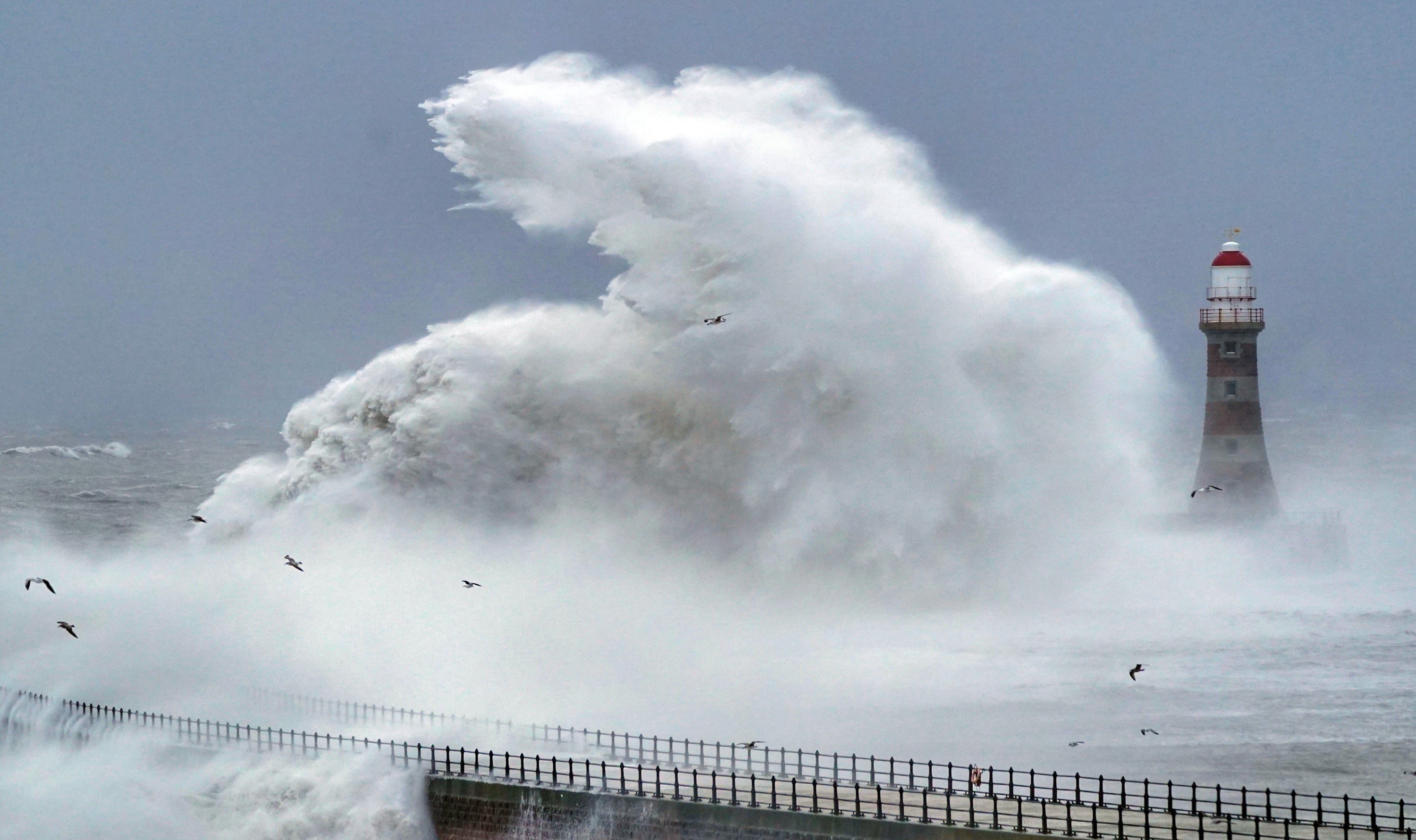Storm Barra to batter UK with disruptive winds, heavy rain and snow
It comes as communities continue to deal with the fallout of Storm Arwen, with some homes still without power.

Your support helps us to tell the story
From reproductive rights to climate change to Big Tech, The Independent is on the ground when the story is developing. Whether it's investigating the financials of Elon Musk's pro-Trump PAC or producing our latest documentary, 'The A Word', which shines a light on the American women fighting for reproductive rights, we know how important it is to parse out the facts from the messaging.
At such a critical moment in US history, we need reporters on the ground. Your donation allows us to keep sending journalists to speak to both sides of the story.
The Independent is trusted by Americans across the entire political spectrum. And unlike many other quality news outlets, we choose not to lock Americans out of our reporting and analysis with paywalls. We believe quality journalism should be available to everyone, paid for by those who can afford it.
Your support makes all the difference.Storm Barra will hit the UK and Ireland with disruptive winds, heavy rain and snow on Tuesday, according to the Met Office – threatening more chaos as some households continue to struggle without power in the wake of Storm Arwen
Weather warnings for snow, ice, rain and wind have been issued as Storm Barra sweeps in from the Atlantic.
It comes as the Prime Minister has said homes affected by the power cuts will have supply restored.
On Monday, when some 1,600 households in the North East were still without electricity – 10 days after Storm Arwen, Boris Johnson said he had spoken to the chief executive of Northern Powergrid and had been “assured they would be reconnected tomorrow at the latest”.
Later on Monday evening, the electricity supplier said it had reduced the number of homes and businesses affected to 700.
Ice was expected overnight ahead of Storm Barra’s arrival, with the Met Office issuing a yellow warning as drivers faced potentially hazardous conditions in western Scotland and north-west England.
While the west of Ireland will receive the worst of the storm on Tuesday, yellow wind warnings are in place across England, Wales and Northern Ireland – with travel disruptions likely.
There are also fears of power cuts and damage to buildings.
Wind gusts of 60-70mph are expected on the western and southern coasts of England and Wales, accompanied by large waves that carry a “small chance” of risk to life by throwing beach material onto sea front, coastal roads and properties, the Met Office said.
The Royal National Lifeboat Institution (RNLI) has urged people to stay well back from the water’s edge and to dial 999 for the coastguard in any coastal emergency.
The Environment Agency has issued three flood warnings for England’s south coast, as well as 35 flood alerts.
Yellow snow warnings are also in place in northern England and Scotland, with blizzards and snowfall of up to 20cm causing treacherous conditions on roads at higher altitudes, the Met Office said.
In Ireland, schools have been told to keep their doors closed as a rare red warning was given for Cork, Kerry and Clare.
Met Office meteorologist Aidan McGivern said Storm Barra’s wind gusts and impacts “will be a notch down compared to Arwen”, which led to widespread power cuts on November 26 – some of which have not yet been restored.
There are concerns that gale-force winds on Tuesday could make it more difficult for engineers to reconnect homes, though spokesman Stephen Dixon said winds would “gradually weaken” as they move east and should have petered out by Thursday.
Following a call with the boss of Northern Powergrid, Phil Jones, the Prime Minister tweeted he had “asked for assurances that the energy supply companies were putting in place measures to limit any potential further disruption to households as a result of Storm Barra”.
The energy minister, Greg Hands, said on Monday it was “completely unacceptable” that around 1,600 households were still without power.
Labour has accused the Government of treating people in Scotland and the north of England as “second-class citizens”.
Residents in the affected areas told PA they were losing hope and feeling “fed up and angry” as they faced an 11th night without electricity.
A deadline set last Wednesday to restore power supply to all properties by the end of the week was missed.